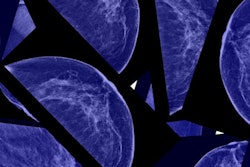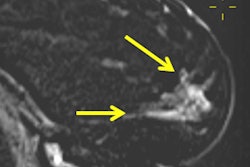German mammography screening program participants with invasive breast cancer can generally be treated with less intensive surgical and systemic therapy than nonparticipants, even those with interval cancers, researchers have found.
The team, led by Bettina Braun from the Institute of Epidemiology and Social Medicine at University of Münster in Germany, compared tumor characteristics and prognostic markers in breast cancers that were detected by screening in the program, in the interval after a negative screening, or among nonparticipants in screening (Deutsches ärzteblatt International, 6 August 2018, Vol. 115:31-32, pp. 520-527).
In their study of 1,531 newly diagnosed cases of invasive and ductal carcinoma in situ (DCIS), the researchers conclude breast cancer was still at an early stage more frequently in screening participants compared with nonparticipants (23% versus 31%). Invasive cancers were smaller in participants (74% versus 55% in the T1 stage), could be operated on more frequently in a breast-conserving manner (75% versus 62%), and a guideline-based indication for adjuvant chemotherapy was less common in these patients (46% versus 52%).
One can assume comparable figures in other screening regions, the researchers said. Future studies should also investigate the quality of life after a diagnosis of invasive carcinoma in screening participants, they added.



















